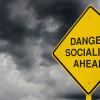The recession caused by the COVID-19 pandemic has had a significant impact on the global economy, and Australia's recovery will undoubtedly be a difficult journey. With border closures and lockdowns disrupting a number of industries, particularly the tourism sector, the road to rehabilitation seemingly won't be consistent across industries.
Recent reports confirm that the coronavirus economic recovery path will be a challenging and taxing one as different sectors attempt to return to their regular activity. While the mining sector, known for being the foundation of the country's economic success, remains unrelenting, other industries, such as education, tourism, and retail, are fighting to survive. As a result, Australia's success at containing the COVID-19 pandemic has come at a high cost: the first recession in the last three decades.
Education
Firstly, the education sector has experienced a major hit even before the coronavirus pandemic. What should have been the beginning of a new, profitable semester in the early months of 2020 had already shown a dangerous outlook. Universities across Australia suddenly froze their recruitment efforts and building works in order to cover a major funding deficit caused by thousands of international students suddenly foregoing Australian schools. This novel crisis for the country's third-largest export sector has only been worsened by the disputes with China, an important market for international students.
However, as the education industry stretches to more than just the tertiary institutions, including primary and secondary schools as well, the impacts of COVID-19 might not be quite so dramatic. While the lack of foreign students might have presented a big hit to the sector, the existing students have already paid in advance, and the shift to online learning has encouraged a new form of education, allowing the industry to survive these hardships.
Tourism
Secondly, the tourism industry, a sector that has arguably been hit by the results of the COVID-19 pandemic the hardest, has experienced its worst year so far in 2020. The widespread lockdowns and the closure of state and national borders combined with a dangerous season of bushfires have truly dismantled the industry.
While some cafes and restaurants might have been able to find temporary solutions, such as turning to takeaway options, the strict coronavirus restrictions also meant that some businesses had to shut down completely amidst the lockdowns. Companies that were unable to adapt to these new changes have now found themselves looking at an uncertain future. However, the recent openings and easing of restrictions have shown some hope. During the school holidays, Australians have filled their neighborhood beaches, cafes, and restaurants in an effort to support their local economies.
According to reputable economic news sources, the tourism and travel sector shows promising signs of recovery amidst openings. Domestic tourism has already kickstarted the weakened industry, and international travel that is expected to reemerge in the near future has already had a significant impact on the travel stocks in the country.
Retail
Finally, the retail sector has recently seen a record number of sales since the beginning of the pandemic, mostly due to government stimulus and the built-up demand that has supported spending. However, these results aren't expected to last very long. As rent and mortgage holidays come to an end, and subsidies unwind, retailers are fretting about a sudden drop in sales.
It's no secret that Australia's retail industry has been struggling even before the COVID-19 outbreak, with higher household debt, weaker wages, and poorer consumer confidence affecting demand. The coronavirus crisis has only intensified these factors, as subsequent job losses and reduced working hours drove the sector to a record low since the 1990s.
Although the food and grocery industry might continue to perform well, likely due to the necessities they provide, the need for clothing and accessories still remains weak as shoppers continue to spend most of their time at home. It seems like retailers selling non-essential items will have to fight to find the most profitable business idea and create the most engaging marketing campaigns in an effort to survive these hardships.
On the other hand, the increased time spent at home might also encourage consumers to remodel their homes, redesign their gardens, and even undertake certain DIY projects, as was seen during the height of the pandemic. In turn, this could lead the furniture, homeware, and hardware sectors back to an increase in profit.
Evidently, the COVID-19 pandemic has had a significant impact across all industries and sectors in Australia. As the situation is set for recession, plenty of uncertainty still remains, but the economy continues to show hope for recovery, only at a slower and steadier pace.
















